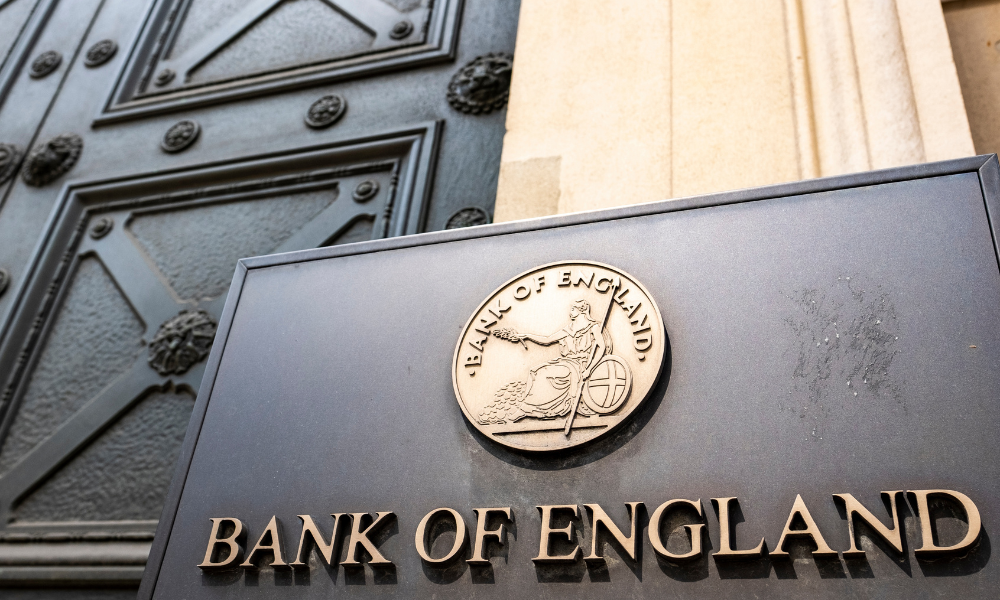Debate over BoE's interest payment kicks off again as Tice accuses Bank of wasting billions

Reform UK has reignited the debate over the cost of the Bank of England’s quantitative easing programme, accusing the central bank of funnelling vast sums of taxpayer money to commercial banks through interest payments on reserves.
The party, which has been climbing in recent opinion polls, has pledged to halt what it calls “unnecessary” and “voluntary” payments to City lenders, arguing this could save the government up to £35 billion a year. The funds, it claims, could be better spent reducing the tax burden on households and businesses.
In a pointed letter to Andrew Bailey, the Bank’s governor, Richard Tice, Reform UK’s deputy leader, wrote: “The Bank of England is unnecessarily wasting tens of billions of pounds of taxpayers’ money, whilst enriching City institutions.” He called the situation a “systemic misuse” of public funds.
At the heart of the row is the interest paid on nearly £700 billion in reserves held by commercial lenders at the Bank of England—a by-product of the QE programme that ran from 2009 to 2021. Under QE, the Bank purchased £895 billion in government bonds, injecting cash into the financial system. That money was then parked by the banks at the central bank, earning interest pegged to the base rate, currently 4.25 per cent.
This arrangement proved profitable for both parties when rates were low. But the rising cost of borrowing has flipped the calculus. Since late 2022, the Treasury has had to reimburse the Bank for mounting losses, reversing earlier windfalls. More than £85 billion has already been transferred back to the Bank, according to figures from the Office for Budget Responsibility (OBR), with the eventual taxpayer loss projected to reach £133.7 billion.
“This money was created out of thin air by the Treasury and Bank of England to lubricate the wheels of the economy at two times of extreme national stress over the last 18 years,” Tice wrote. “It did not belong to those City institutions in the first place.”
The Bank, however, has pushed back strongly. Bailey has previously told Parliament that paying interest on reserves is a central tool for maintaining control over interest rates. Removing or reducing these payments, he argued, could drive banks to move their funds into government bonds, undermining monetary policy.
“There would be no fiscal saving,” he warned. “Any presumed benefit to the public purse from reducing interest payments in this way would … be illusory.”
Commercial banks, too, have defended the status quo. UK Finance, the industry’s trade body, said any change would “likely lead to consumers and businesses facing higher banking costs”.
The Bank’s position has found support within government. Bim Afolami, economic secretary to the Treasury, told peers last year that reforming the reserve payment system would be “very disruptive” and “not a sensible way forward”.
Others remain unconvinced. Among those advocating for change are former Bank insiders including Sir Paul Tucker and Sir Charlie Bean, as well as former prime minister Gordon Brown. Some support a more moderate reform—such as a tiered reserve system, adopted by the European Central Bank in 2023—which would pay interest on only a portion of reserves.
Estimates of the potential savings vary. While Reform UK has suggested up to £35 billion annually, independent analysts place the figure closer to £10 billion to £15 billion, depending on how any changes are implemented.
Despite the divergence in estimates, the issue is likely to remain politically contentious as public scrutiny of government borrowing costs intensifies. “Our job is to challenge, scrutinise and question,” Tice said. “It would be negligent of us to ignore this very significant issue and leave it in the hands of unelected people.”
For now, the Bank of England remains firm. A spokesperson reiterated that Bailey had outlined the Bank’s position in full to the Treasury Select Committee and had no plans to change course. Whether Reform’s challenge gains further traction may depend less on economic orthodoxy and more on the mood of an increasingly cost-conscious electorate.



